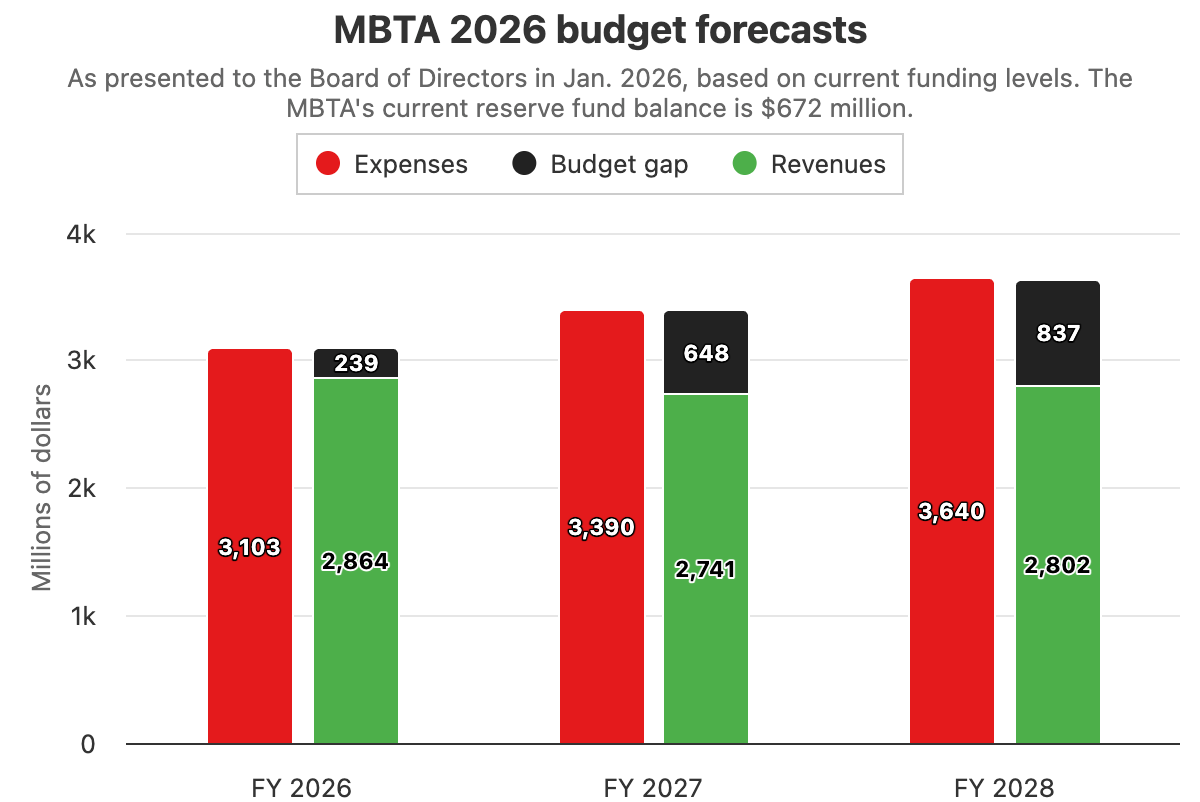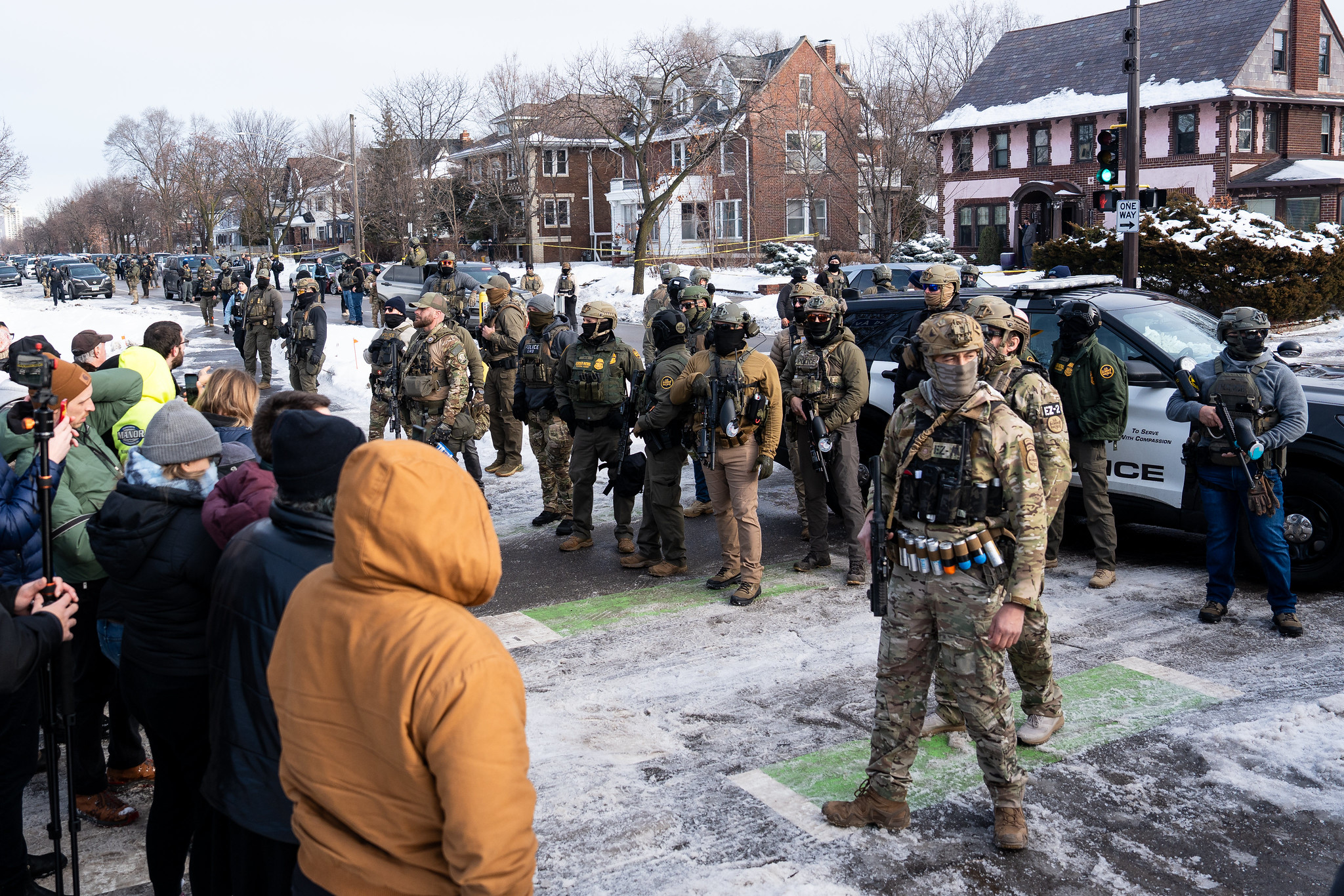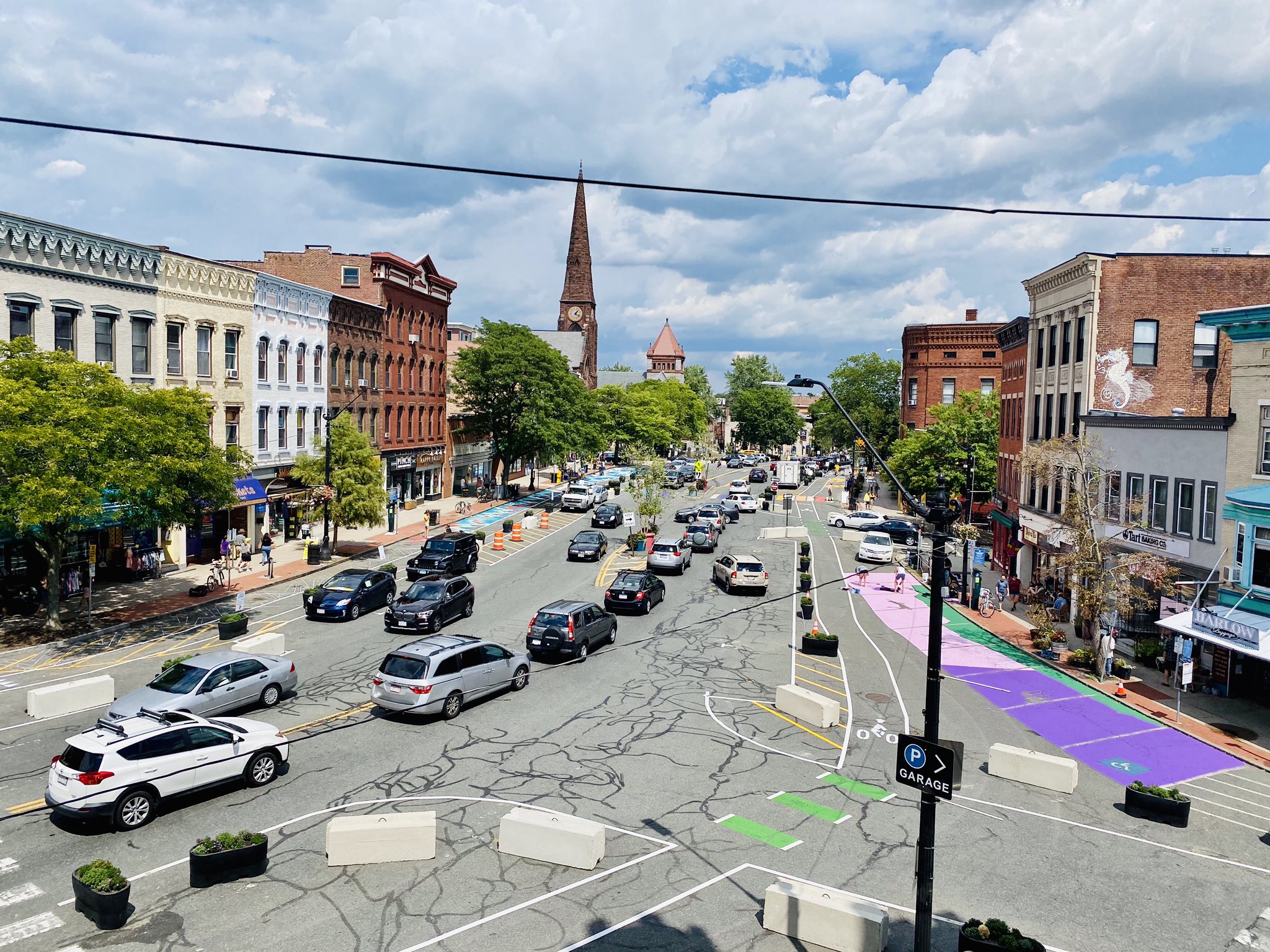In the last weekend of May, young people and their adult allies from all over the country came together at Roxbury Community College for this year's Youth Bike Summit, hosted by the National Youth Bike Council and local nonprofits Bikes Not Bombs, Mattapan Food and Fitness, and sponsors like Transportation for Massachusetts, Boston’s Children Hospital, and the Barr Foundation.
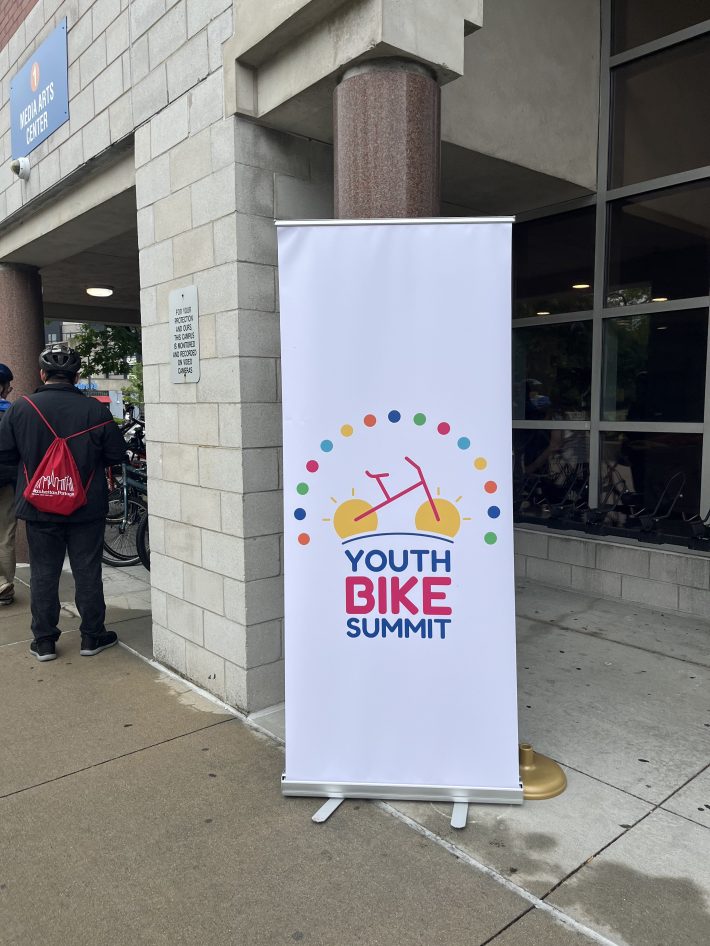
The weekend summit kicked off with a Friday with checking in at the Emerson dorms, self-guided activities and rides throughout the city, a hangout with live music, games, and networking, ending the night with a welcome reception and dinner.
The purpose of the summit was immediately made clear in Saturday’s opening, to “dismantle systemic barriers, especially for Black, Brown, and undervalued communities, by increasing access to wellness, mobility, and decision-making spaces,” National Youth Bike Council Board Chair Joshua Funches explained.
State Senator Liz Miranda addressed the crowd, speaking on her journey to becoming an advocate and a politician, and encouraging the young people in the crowd to engage and collaborate with political leaders to access resources like political capital for the change they want to see and be.
Boston's Bike Mayor Vivian Ortiz also spoke to the participants about how young people can reclaim the joy, safety, and belonging in their communities through biking.
The youth keynote speaker, high school sophomore Anika P. from Western Massachusetts, took to the stage to tell her story of how she fell in love with cycling. Reflecting on how she used to be “super closed-off” with “no connections, no real passions… never super into anything,” Anika recalled following in her older sister’s steps.
“As an impressionable younger sister, I always just did what she did. If I liked it, great. If I didn’t, I would just wait for her to find a new hobby,” she joked.
After choosing between cycling club and track and taking up cycling, she became a pivotal piece of expanding her school's cycling club, and even attended a bike lobby at the State House to advocate for bike safety, awareness, and discuss legislation to make roads safer for cyclists.
This experience showed Anika that she has a voice and a place at the table and her perspective is important in bringing about inclusive change that meets everyone where they’re at.
And as for her personal development, “joining Bike Club and student council let me open up to myself and my community.”
“You have to be uncomfortable to get comfortable… It can be scary to take risks and put yourself out there, but the rewards of pushing yourself and embracing new possibilities often outweigh the fear of the unknown.”

Despite it being rainy and grey outside, the Media & Arts Center Auditorium was bright, lively, and loud. Students rallied with group cheers and heard from a variety of speakers before setting off on their day of workshops to continue learning and connecting.
The agenda on Saturday included seventeen different classroom sessions and eight mobile workshops off-campus, all fitting under one of the themes of “C.Y.C.L.E.S: food access, nutrition, health, green spaces”, “DARE to BIKE: bike mechanics, careers, bike safety, leadership, biking skills”, “Art, Identity, and Culture: creativity, barriers to biking, youth development”, and “Biking and Beyond: everything else you wanted to know about biking!”
Additionally, there was a drop-in “MakerSpace” open all day where students could stop by and make crafts, connect with other attendees, and take a break from the day.
I selected a variety of sessions across the workshop themes to get a wide range of the summit’s offerings, but the energy of bike joy, access, justice, youth empowerment and leadership, and civic engagement were present throughout them all.
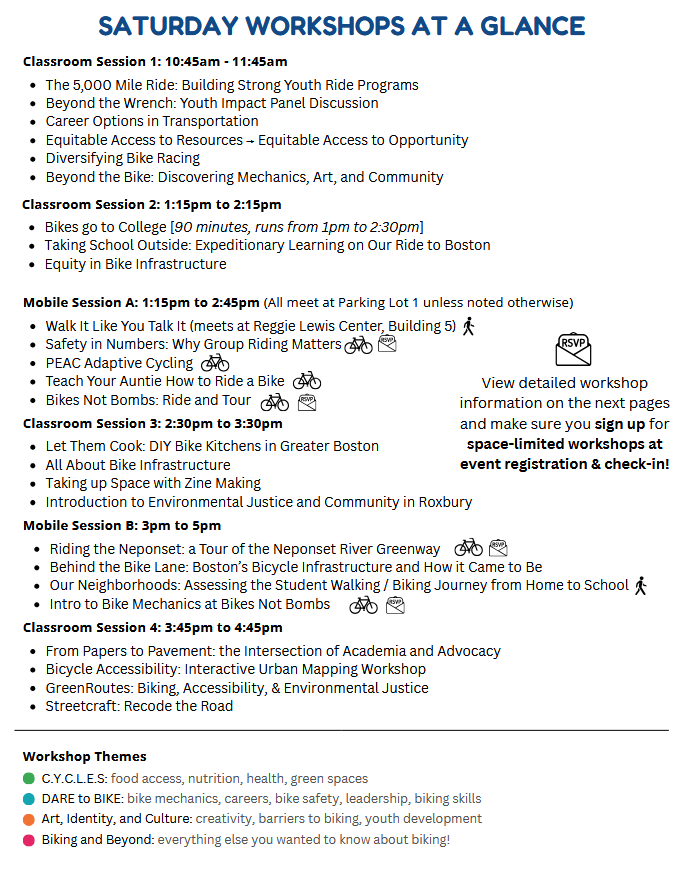
Chicago's Recyclery Collective
Young people from The Recyclery Collective in Rogers Park, Chicago, spoke about their model and process in getting involved in the city-wide “Bike Chicago” initiative, in which they have built hundreds of bikes to be distributed across Chicago as part of the program’s total 3,508 bikes to be distributed as of May 2025.
The Recyclery team discussed research done by the Shared-Use Mobility Center (SUMC) on the city’s bike program. Through surveys and other means of data collection, SUMC found that 60 percent of recipients reported driving less, 40 percent use their bike three to five times a week, and 80 percent are extremely satisfied.
However, the aim of the distribution program is to reach under resourced spaces in the city, namely the south side and the west side, where their biking infrastructure does not facilitate a smooth ride.
“Clients said that they like riding their bike, but they still didn't feel like they had a safe place to do it in their immediate urban surroundings, said program coordinator Tzippy Rhodes.
When funding for the city-wide program ends after 2026, The Recyclery hopes to continue providing resources for their far north side community and beyond. The Recyclery holds weekly open shop times for the general public, as well sessions specifically for young people and another set for femme, trans, women, and non-binary people, building safer, affirming spaces in cycling.
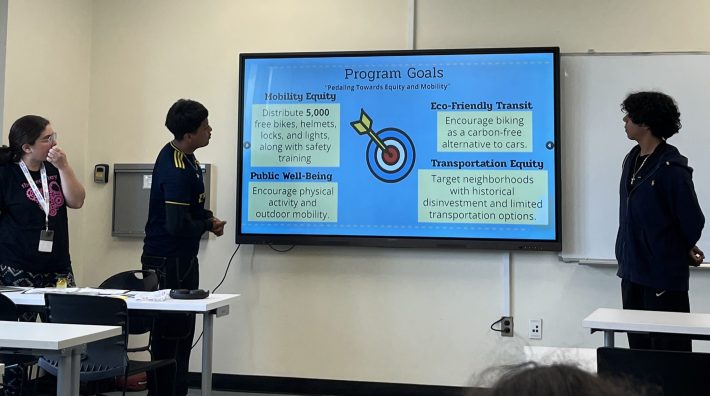
The youth who volunteer and intern with The Recyclery receive training in bike assembly, mechanics, and quality control, all while feeling empowered as peer leaders.
One of the presenters, Randy, proudly reflected on his path to becoming an advanced intern and hiring his younger brother, Jose.
“Randy has personally built 252 of these bikes. And Jose has personally built 137 of these bikes… other interns have been involved in the process…. Really amazing,” Rhodes shared while Jose and Randy smiled and looked on at the slides of their accomplishments.
From Brooklyn to Boston: El Puente's bike ride to the Summit
El Puente’s Bike Club presentation featured the handful of students who embarked on a journey from Brooklyn to Boston. The presentation was broken down by day, with students paired up with an adult to talk about their experience on that given day. The presentation was also bilingual, with the adult chaperones translating for some of the youth who presented in Spanish.
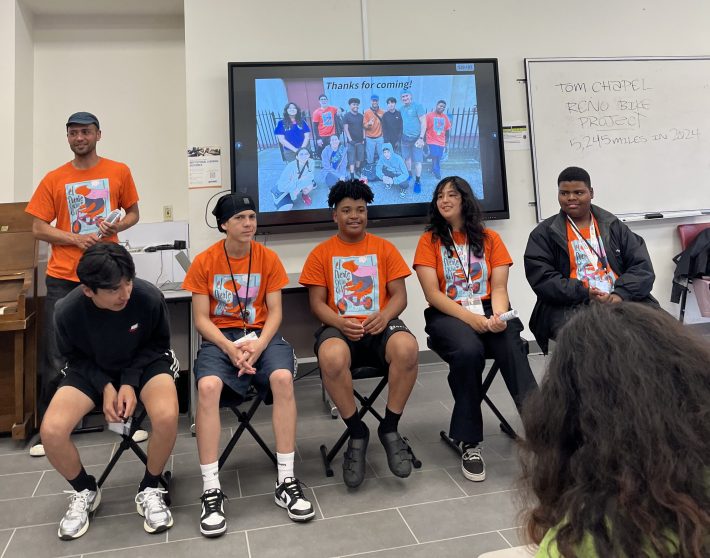
Jorge and Argenis, Nick and Raymond, Joe and Jeffery, Eli and Kaede, and Lauren and Misael broke down each day of the ride. The riders got started in Williamsburg, where they took a train up to New Haven, CT. From there, their biking began. Over the course of five days, students rode across state lines, camping, cooking, and learning along the way in places like The Quarry Campground in Connecticut and Nickerson State Park in Brewster. Once they arrived in Provincetown, the young riders took a ferry into Boston to get to the Summit.
As the young people made their way to P-Town, they spent their time tackling different topics each day, from coastal erosion at Nauset Lighthouse to safe havens for different cultural and identities in New York City. Being on the ground, reflecting in real time, participants had a discussion about existential questions like what it means to protect land and people.
There were moments of the ride that made the youth nervous, passing bridges with no guardrails, highway shoulders, and elevation challenges. But despite the challenges they faced, they kept each other going, and made sure to celebrate their wins. One rider reflected on one day where “everyone was just biking. No one got in the car. That was really special.”
The El Puente youth ran into supportive strangers along their journey as well, cheering them on as they made their way to the coast. “We met a man on the third day… he stopped us and said he was inspired by what we were doing, riding all those days toward Boston.”
Boston's bike kitchens
Another session featuring several bike kitchens across the Greater Boston Area highlighted bike resources, community, and connection up and down Route 28. Bike kitchens are volunteer-run, community-oriented spaces where people can get help in bike maintenance and repair, while building community and sharing skills. Most bike kitchens operate on donations, grant funding, and grassroots partnerships.
Representatives from the Dorchester Bike Kitchen (Vivian Ortiz), the BU Cycle Kitchen (PQ Diengott), the Somerville Bike Kitchen (Alexis Vidaurreta), and Bike to the Sea (Agnes Recato) shared more about their journeys to becoming operational, building community partnerships, partnering with one another, events and resources they offer, and future plans.
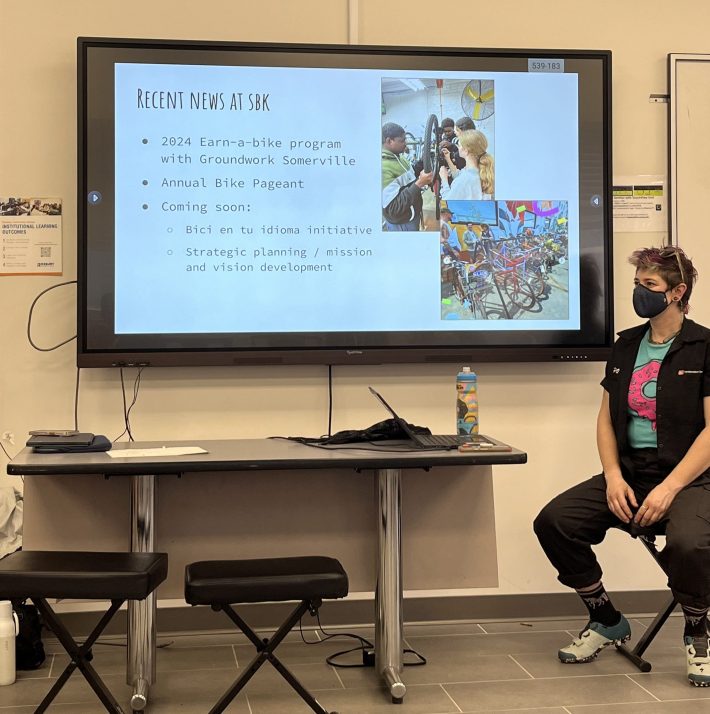
They touched upon how they work to counteract the predominantly white and male association regularly attributed to bike culture, challenges and successes they have faced in expanding their work, and future sustainability.
Emphasis was placed on decentering hierarchy and centering community, creating an intersectional environment where cycling directly supports economic opportunity and public health, and educational experiences where people learn how to fix their bikes and are trusted to do it themselves.
The bike kitchen network has a lot to look forward to. Vidaurreta detailed plans for “Bici en tu Idioma”, a program funded by a recent grant where Somerville Bike Kitchen is going to partner with the BU Cycle Kitchen and other local organizations to distribute, fix and distribute bikes to the Somerville Latin community, and host some open shops in Spanish.
PQ shared more info about Femmechanics, a group of women, nonbinary, and trans people who bike and build community in the Boston area, creating safer, inclusive spaces in the bike world. Recato promoted "Bike to the Sea Day," which took place on June 1st.
Bike to the Sea by the Numbers
- Repeat Visitors to Bike Kitchen
- Yes: 71.8%
- No: 28.2%
- Race/Ethnicity of Visitors
- White / Caucasian: 42.4%
- Hispanic or Latinx: 21.2%
- Asian / Pacific Islander: 15.2%
- Black or African American: 12.1%
- Prefer not to answer: 6.1%
- Other / Multiracial: 3.0%
- Age of Visitors
- Under 18: 15.2%
- 18–24: 21.2%
- 25–45: 51.5%
- 45–65: 12.1%
- Home Zip Code of Visitors
- 02134 (Allston/Brighton): 12.1%
- 02115 (Fenway/Longwood): 9.1%
- 02139 (Cambridgeport): 9.1%
- 02130 (Jamaica Plain): 9.1%
- 02120 (Mission Hill): 6.1%
- 02138 (Harvard Sq/Cambridge): 6.1%
- 02135 (Brighton): 6.1%
- 02163 (BU area): 6.1%
- 02215 (Kenmore/Fenway): 6.1%
- Other: 18.2%
Chelsea's ECO Youth
In the last session of the day, I went to an interactive presentation hosted by the Environmental Chelsea Organizers (ECO) Youth of GreenRoots and their Youth Programs Organizer Andie, addressing environmental justice in the Greater Boston Area.
Each of the five students took turns leading a part of the presentation, connecting the topic to their lived experiences, and asking participants to reflect on the differences between their own communities and Chelsea.
The ECO Youth engaged participants in conversation about the state of biking infrastructure in Chelsea, and how negative disparities discourage biking despite programming that tries to incentivize it. “A bike won’t help if the road’s unsafe, if people are scared, or if there’s nowhere to ride that feels good.” They find that advocating for these needed changes are challenging, due to the relationship between politicians and the public, not feeling heard, and youth disengagement with the process, all things they hope to see change by doing this work.
Historical redlining and present-day gentrification are affecting Chelsea, which was a dedicated part of the presentation, as attendees identified safe and unsafe areas to bike in the Greater Boston Area, overlaid with a map of redlining in the same area. “A lot of the reasons some areas are unsafe to bike is because of environmental injustices that happened before I was even born,” one student remarked.
I was able to have a longer conversation with the ECO Youth following the session, which I am excited to report on in the near future.

It was extremely inspiring to see these young people share their lived experiences and speak truth to power, advocating for the need for increased resources to support not just their hobby, but something that connects them to the broader world.
Biking has brought them joy, community, mobility, economic opportunity, educational experiences, food, and positive relationships with themselves and others.
Just being in the rooms as these young people learned, laughed, and led together was inspiring and revitalizing.

